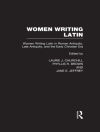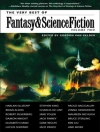The Good Soldier by
Ford Maddox Ford , is part of the
Barnes & Noble Classics
series, which offers quality editions at affordable prices to the student and the general reader, including new scholarship, thoughtful design, and pages of carefully crafted extras. Here are some of the remarkable features of
Barnes & Noble Classics:
- New introductions commissioned from todays top writers and scholars
- Biographies of the authors
- Chronologies of contemporary historical, biographical, and cultural events
- Footnotes and endnotes
- Selective discussions of imitations, parodies, poems, books, plays, paintings, operas, statuary, and films inspired by the work
- Comments by other famous authors
- Study questions to challenge the readers viewpoints and expectations
- Bibliographies for further reading
- Indices & Glossaries, when appropriate
Barnes & Noble Classics pulls together a constellation of influences—biographical, historical, and literary—to enrich each readers understanding of these enduring works.
Handsome, wealthy, and a veteran of service in India, Captain Edward Ashburnham appears to be the ideal “good soldier” and the embodiment of English upper-class virtues. But for his creator, Ford Madox Ford , he also represents the corruption at society’s core. Beneath Ashburnham’s charming, polished exterior lurks a soul well-versed in the arts of deception, hypocrisy, and betrayal. Throughout the nine years of his friendship with an equally privileged American, John Dowell, Ashburnham has been having an affair with Dowell’s wife, Florence. Unlike Dowell, Ashburnham’s own wife, Leonora, is well aware of it.
When The Good Soldier was first published in 1915, its pitiless portrait of an amoral society dedicated to its own pleasure and convinced of its own superiority outraged many readers. Stylistically daring, The Good Soldier is narrated, unreliably, by the naïve Dowell, through whom Ford provides a level of bitter irony. Dowell’s disjointed, stumbling storytelling not only subverts linear temporality to satisfying effect, it also reflects his struggle to accept a world without honor, order, or permanence. Called the best French novel in the English language, The Good Soldier is both tragic and darkly comic, and it established Ford as an important contributor to the development of literary modernism.
Frank Kermode has taught at Manchester, London, and Cambridge Universities as well as at Harvard, Yale, and Columbia. Among his many books the most recent are Shakespeare’s Language, Pieces of My Mind, and The Age of Shakespeare.












